Long ago, in the 1980s and 1990s when Hong Kong was preparing for the 1997 transfer from British back to Chinese rule, there was a basic question in many minds: could Hong Kong be transformed into a democratically-governed city within the larger Chinese state?
It was a two-part question: could a democratically-governed city take root where such a form of government had never before been allowed to exist? And could such a democratic change occur under a Communist Party-led government?
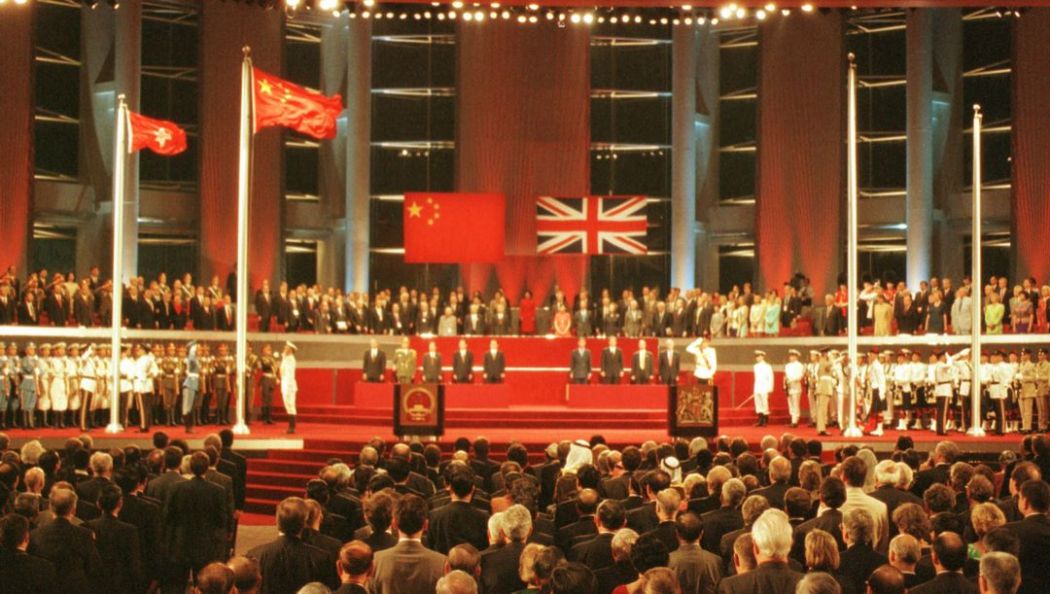
The challenges should probably have been rejected right then and there, before 1997, as more than anyone could realistically hope to accomplish. But they were not. Instead, they were kept alive by a combination of initially non-committal Chinese leaders in Beijing who allowed the dream to drift, and by the persistence of Hong Kong’s own pro-democracy partisans.
It was the basic question underlying the new-born movement before 1997 and remains now to bedevil adherents as a younger, more defiant successor generation has insisted on challenging the idea that Hong Kong can democratise within the Chinese state.
The new answer to that old question, after 20 years of action and reaction between Hong Kong partisans and Beijing leaders, has become an increasingly emphatic “no!”.
Hong Kong cannot democratise because China’s rulers in Beijing will not allow it and they have become more willing to say what they mean. They will not allow it because instead of following through on their own 1980s promises of political reform, they have been moving in the opposite direction – toward more restrictive manifestations of unitary autocratic rule.
The case of disqualified politician Eddie Chu Hoi-dick reaffirms that response. If an aspiring candidate can be barred from an election at the lowermost rung on the ladder of Hong Kong’s representative bodies, because of his commitment to the ill-defined political concept of self-determination, which in his case specifically disavows independence, then Hong Kong’s new defiant successor generation is correct.

The pre-1997 aspirations for a democratic Hong Kong have become an exercise in futility, given Beijing’s increasingly forthright determination to extinguish them, and the acquiescence of Hong Kong’s executive and judicial authorities.
The applicant and his ideas
Eddie Chu is the victorious 2016 Legislative Council (LegCo) election candidate who came out of nowhere to earn the Election Day accolade “King of Votes” by winning more than anyone else. Little was known about him except his unusual resume. He was born in Hong Kong in 1977 and graduated from the Chinese University before going into journalism and deciding to learn the Persian language, which he studied at Tehran University.
During the 2016 election campaign, he explained his return saying he had become acquainted with local activists in Iran and ultimately decided his place was back home in Hong Kong where he could do here what his new Iranian friends were trying to do there.
Chu became active in “local” causes before the term “localist” became an identifiable trend within Hong Kong’s democracy movement. In the early 2000s, there were several controversies sparked by redevelopment and activists fought many losing battles before the advance of the demolition crews. Chu was involved in the effort to save the old Star Ferry Pier and Queens Pier along the Hong Kong Island waterfront.

He was also involved in the 2009-10 struggle to protect the interests of suburban New Territories villagers after they found themselves in the path of the new high-speed cross-border rail link. It finally went into operation a few months ago. But that campaign taught him something about the complexities of rural land management and suburban redevelopment. It taught him, in other words, to distrust what he saw as government collusion with property developers and rural kingpins along with their strong-arm triad enforcers.
Naturally, his activism and agitating didn’t sit very well with the existing New Territories property-owning power-brokers and he was defeated in two (2011 and 2015) District Council contests. Chu then set his sights on a much larger, more inclusive, constituency and in September 2016 won a New Territories West Legislative Council seat with ease. One of his campaign promises was to reform the rich and powerful Heung Yee Kuk (or Rural Council) that has dominated rural affairs for decades.
Soon afterwards, he was one of many new legislators-elect who embellished their oaths with activist slogans during the swearing-in ceremony. For reasons never revealed, the government chose to act selectively by disqualifying only six.
Eddie Chu was not among them, possibly because he had only just won territory-wide recognition as the new “King of Votes” and his disqualification would have caused even more controversy. Or maybe it’s a measure of Beijing’s hardening resolve that ideas acceptable then are redefined as unacceptable now, just two years later.

But at that time, in 2016, he spoke openly and at length about his ideas for Hong Kong’s future democratic development. Chu cast himself as a moderate among the new breed of localists that emerged from what he saw as the watershed Occupy Central-Umbrella Movement street blockades of 2014.
By coincidence, the Foreign Correspondents Club invited him to give a luncheon talk on October 11, 2016, the day before LegCo’s calamitous swearing-in ceremony. Chu began apologetically by saying it was the first speech he had given in English and he guessed he had been invited just because people were curious about the person who had won so many votes.
He mentioned the oath-taking protest planned for the next day but indicated he wasn’t too interested in that sort of demonstration and was willing to swear allegiance as required.
He explained how Occupy 2014 had become a watershed. People had not only lost confidence in Beijing’s promises, but also in the original generation of pan-democrats. This was because they didn’t know how to fight effectively for what they wanted. The focus of the democracy movement they led had been on Hong Kong’s Beijing-drafted Basic Law constitution with its one-country, two systems governing design.
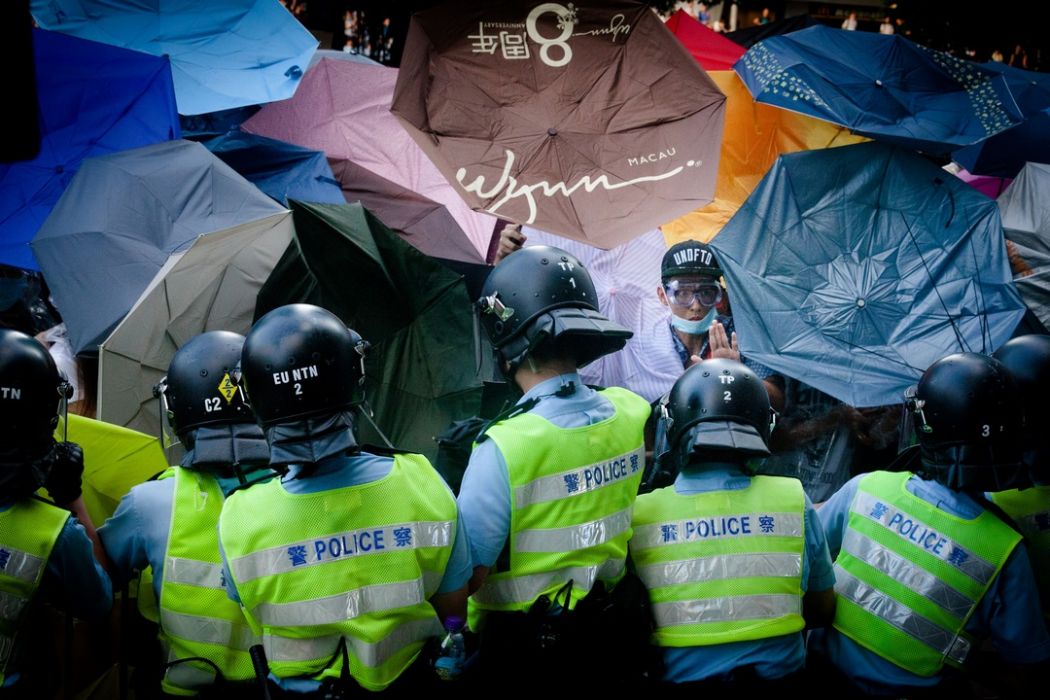
Chu said Hong Kongers should think more creatively about what they can do for themselves and not just focus on the formulas that Beijing and Britain had arranged for them. There was a range of options, reflecting the new localist commitments that had emerged post-2014.
He spoke of two: the one he rejected for himself was the demand of localist-nationalists for independence. He said that was not for him. He thought it was not the way to go because it would have the effect of trying to distinguish real from fake Hong Kong people.
Instead, he was advocating a kind of democratic self-determination, which would mean keeping Beijing’s Basic Law. That was why he didn’t mind taking the oath-of-office that pledged him to defend it, just as long as there could be changes that would allow Hong Kongers to manage their own political lives.
He thought the post-Occupy lost momentum of Hong Kong’s democracy movement could be revived in this way, by working toward some form of self-determination within the Basic Law’s framework. But much remedial work needed to be done in order to rebuild the movement.
He pointed to Articles 158 and 159 of the Basic Law. These, he said, should be amended. They stipulate that the power to interpret and amend the Basic Law is vested in the Standing Committee of the National People’s Congress, which means the Communist Party leadership in Beijing. Amendments must, however, be approved by two-thirds of Hong Kong’s own legislature.
He saw this as democrats’ Achilles heel because they had not worked hard enough, in the right way, to win even a simple LegCo majority, much less two-thirds of all its members. This failing should be remedied by self-consciously rebuilding the movement at the grassroots level
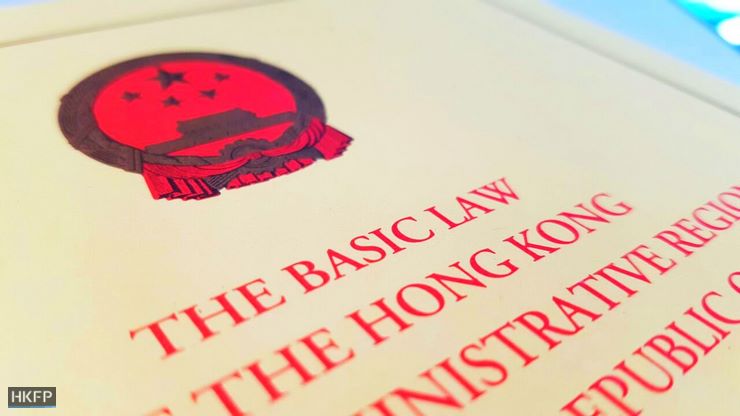
The only thing Beijing respects, he said, is political power. But Hong Kong’s democracy movement had allowed itself to become too distracted at the grassroots level by neighbourhood livelihood issues and the provision of local services.
The movement had not done a good job of consolidating the goodwill thus earned into a well-articulated political power base. Only in that way would people make the connection and understand: when they vote for local issues, they are also making choices destined to impact the overall political system and ultimately Beijing’s promises about Hong Kong’s political rights and freedoms.
He estimated it would take at least one or two election cycles to rebuild the movement in this way, into an effective power base. Only then, with a majority in LegCo, would it be realistic to think seriously about how to bring pressure to bear on Beijing and work through the Basic Law’s problems. Otherwise, democrats should not try to compromise with the central government in Beijing: negotiate from a position of political strength, he advised, or not at all.
He also said he was not too keen on the idea of a popular referendum. The idea was being promoted by many of the new political groups, to allow voters to express themselves directly on Hong Kong’s future.
Beijing adamantly opposes referendums because it implies that ordinary voters enjoy a measure of sovereignty and have the right to make decisions on their own, separate from the political authority that governs them.

Chu thought such a vote was no particular threat to the central government. But in his view, the only effective means of getting Beijing’s attention would be via a popular mandate formally exercised through the body established for the purpose, namely, the Legislative Council.
Legislator-elect Eddie Chu made these remarks the day before LegCo’s swearing-in ceremony on October 12. Neither then nor later was his eligibility challenged even though he went ahead and embellished his oath. He was actually one of the more daring. His addition: “Democratic self-determination! Tyranny must perish!”
The lowermost level of representation
Fast-forward two years and Eddie Chu finds himself in the news again, for the same political ideas he was articulating before. A returning officer was asking about Chu’s political beliefs in order to determine his eligibility as a candidate for village elections to be held in the suburban New Territories next month.
“Returning officer” is the designation for civil servants who are temporarily assigned to oversee elections. The coming polls are held regularly to elect representatives from the New Territories. This is the land, between the original colony and the Chinese border, that was leased to the British in 1898. It was the expiration of this 99-year lease that led to the return of all Hong Kong in 1997.

The leased land, mostly rural in 1898, has bequeathed a host of problems to modern-day Hong Kong. Among them are some privileges inherited by the decedents of the 1898 residents that carry over to this day. The English word that has been used to differentiate them is “indigenous,” referring to descendants of the original 1898 inhabitants.
The Chinese term translates literally as “original residents”. Hong Kong’s post-1997 Basic Law constitution, Article 40, promises that the “traditional rights and interests of the indigenous inhabitants of the New Territories shall be protected.”
Previously, participation in the rural representative elections was restricted to the male descendants of those 1898 New Territories families. But in recent years, with so much suburban redevelopment and so many town-dwellers on the move, and with modern-day territory-wide election standards having been introduced, rural elections now include both indigenous and non-indigenous residents. Candidates contest on separate lists, with voters casting ballots according to their residential status.
There are 27 Rural Committees and the elections next month will choose representatives to sit on these committees from 1,300 New Territories rural residential units of all types including two market towns. Voters and candidates must be verifiable residents, whether indigenous or not, of one of the officially recognised villages.
This year some 1,500 village representative seats are at stake, divided between indigenous and non-indigenous residents. The committees are empowered to look after rural interests only and many village seats remain uncontested from one election cycle to the next.
At the pinnacle of this network is the rich and powerful Heung Yee Kuk, with its hereditary “consensual” leadership style and other pre-modern anomalies that candidate Eddie Chu, in 2016, pledged to challenge. The rural system of representation is separate from but linked in various ways to the overall territory-wide system of District and Legislative Councils.
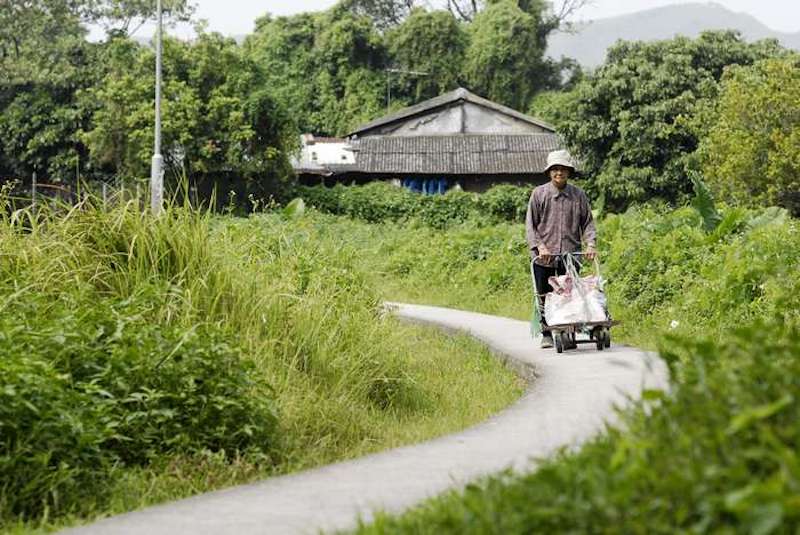
Legislative Councillor Eddie Chu was hoping to be elected as the non-indigenous or resident representative from Yuen Kong San Village, under the Pat Heung Rural Committee, near the town of Yuen Long in the northern New Territories.
He had organised a group of five to contest in different villages on the same reformist platform. Three of these candidates are not only non-indigenous but also non-Chinese. A sixth young Chinese hopeful had to drop out because he was unable to find five neighbours willing to sign the necessary voter recommendation form.
He would most likely have been disqualified anyway since he is a member of Joshua Wong’s Demosisto party that advocates self-determination. The fate of the other four hopefuls is yet to be announced.
Ground for disqualification, December 2018
The rural committees exist at a level so low that Hong Kong’s Basic Law does not mention them, much less dismiss them as not being “organs of political power,” which is the negative description of Hong Kong’s territory-wide District Councils (Article 97).
Nevertheless, all the bodies are now, post-1997, linked in some way. Villages are represented on the Rural Committees, and these have representation on the New Territories District Councils as well as the Heung Yee Kuk. The latter has a reserved Functional Constituency seat in Hong Kong’s Legislative Council, and 26 reserved seats on the 1,200 -member Election Committee responsible for endorsing the selection of Hong Kong’s Chief Executives and its delegation to the National People’s Congress in Beijing. Also, the District Councils now nominate the candidates for five special seats in the Legislative Council.

Hence Beijing, acting through the Hong Kong government, is now stipulating that the entire representative network must be vetted and subject to the same strict eligibility requirements that in the past two years have been introduced to disqualify and screen Legislative Council members and candidates.
The new rules were announced for village representative elections last summer when a new confirmation form was introduced for aspiring rural candidates. But signing the form is not enough.
Returning officers must investigate and render a verdict as to whether prospective candidates are sincere in declaring they will uphold the Basic Law. The key point here is its Article One, which declares Hong Kong to be an inalienable part of China. “Separatists” of any kind need not apply. Those who sign the confirmation form are legally liable and can face criminal charges if they are ruled to have violated their pledge.
Eddie Chu completed all the paperwork but before deciding on his eligibility. Returning Officer Enoch Yuen sent him a set of questions. The officer was following guidelines issued earlier this year on election candidate disqualification.
A judge ruled in another case, that of independence-advocate Andy Chan, that there must be “cogent, clear and compelling materials to plainly show the lack of the requisite intention” to honour any formally made pledges.
Returning Officer Yuen wanted to know if Chu agreed that Hong Kong is part of China, and accepted Chinese sovereignty over Hong Kong, and whether he was sincere in his declaration to uphold the Basic Law.
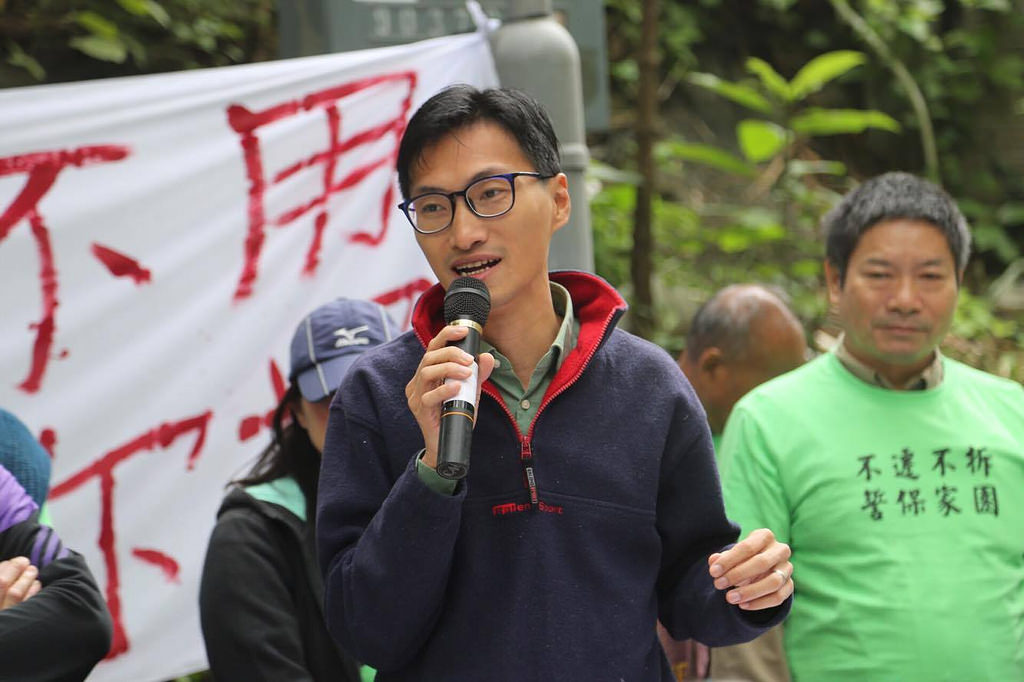
The officer had done his homework and was familiar with Chu’s past statements about not advocating independence himself but agreeing that self-determination should include the independence option, with residents allowed to endorse if that is their preference.
Chu confirmed that he still holds those same views. He also pointed out that they were not held against him as a candidate for LegCo in 2016 and he is still of the same mind.
Officer Yuen refused to validate his candidacy on grounds that Chu was implicitly advocating independence by regarding it as an option that others should be free to endorse. And just because he had received a stamp of approval in 2016 was no guarantee his candidacy should be validated now.
There is no right of appeal for those denied candidate validations. Chu’s only recourse would be to request a judicial review of the officer’s decision. Independence advocate Andy Chan had to wait almost two years for the judgement upholding his disqualification to contest the September 2016 LegCo election.
The Hong Kong government immediately endorsed the decision disqualifying Chu, and added its now-standard improbable defence, namely, that there is no political censorship here, or restrictions on free speech, or deprivation of the right to stand for election as the critics are claiming.

Loyalist voices were raised immediately to demand Chu’s expulsion from LegCo. Chief Executive Carrie Lam said there are no plans to do so, for now. But Chu had also been preparing to run for a District Council seat next year, in furtherance of his ideas about building a political power base at the basic grassroots level.
Not only has that idea now been nipped in the bud, but his LegCo re-election prospects for 2020 are also in serious jeopardy, as are the prospects of many other pro-democracy hopefuls.
Probably, it’s now already too late because the identification of independence with self-determination has been set in stone at the official Beijing level. The Hong Kong government only repeats what it hears, so no help can be expected from that quarter. But if anything is to be salvaged from the wreckage, it can only come with a more careful explanation of what local democrats mean by self-determination.
Sorting out its details and differentiating the possibilities should actually be easy here. It should be easy because what Eddie Chu and the others have been talking about are not some wild Western notions, but only the promises that are written into Hong Kong’s Basic Law constitution. And that document was drafted not by localist democrats in Hong Kong, but under the direction of Communist Party leaders in Beijing.
Correction: This article originally stated that there are around 700 villages in the New Territories. The government figure is 603 indigenous villages, 695 existing non-indigenous villages and two market towns. The updated article reflects these statistics.
